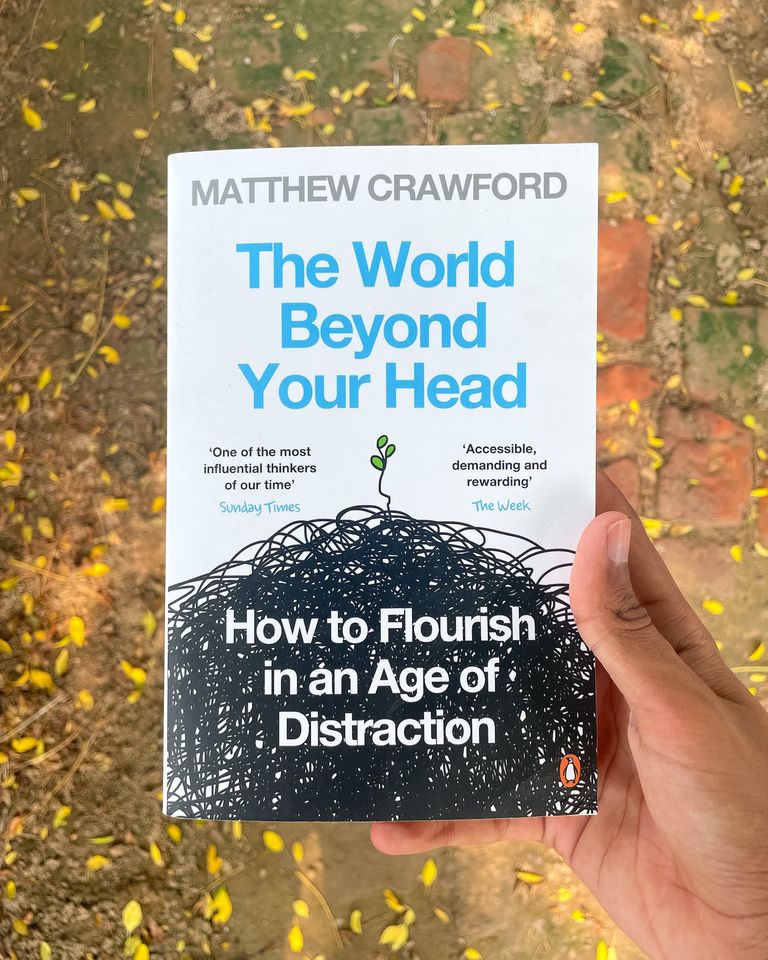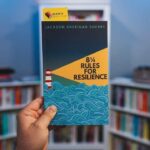In today’s hyperconnected world, where screens and notifications constantly vie for our attention, it’s easy to lose sight of what it means to be an individual. Matthew B. Crawford’s thought-provoking book, “The World Beyond Your Head: On Becoming an Individual in an Age of Distraction,” delves into the profound impact of modern technology and distractions on our ability to cultivate a sense of self and individuality. Here, we explore ten invaluable lessons from this book that can help us navigate the challenges of the digital age and rediscover our authentic selves.
1. Cultivate Focused Attention
In an era defined by constant distractions, the ability to sustain focused attention is a superpower. Crawford encourages us to reclaim this power by immersing ourselves in tasks or experiences without succumbing to the lure of interruptions. Deep engagement with the world around us promotes a profound sense of agency and individuality.
2. Embrace Manual Competence
Our connection with the physical world is vital for developing a sense of competence and autonomy. Engaging in hands-on, practical activities fosters a deep satisfaction that comes from mastering a skill or craft. This connection to the tangible world can counterbalance the intangible distractions of the digital realm.
3. Mindful Information Consumption
In an age of information overload, it’s crucial to be selective about the information we expose ourselves to. Crawford advises us to curate our inputs consciously, avoiding mindless consumption of media. This practice helps us shape our own worldview instead of being shaped by external forces.
4. Embrace Solitude and Reflection
Amid the noise of our digital lives, Crawford advocates for moments of solitude. Disconnecting from constant external stimuli allows us to introspect, leading to a deeper understanding of ourselves and our values. Solitude is where we rediscover our individuality.
5. Practice Discernment
The ability to critically evaluate and discern between different sources of information, ideas, and influences is essential. Cultivating intellectual autonomy helps us resist being overly swayed by external forces and allows us to shape our own beliefs.
6. Engage with Real-World Experiences
Authentic experiences and direct encounters with the physical world are instrumental in enhancing our sense of individuality and agency. Engaging our senses and actively participating in the world around us solidify our unique identity.
7. Prioritize Meaningful Engagement
Actively participating in the world and seeking out meaningful experiences trumps passive consumption. Crawford encourages us to contribute and engage actively rather than passively consuming media and entertainment, which can erode our sense of individuality.
8. Embrace Craftsmanship
Activities that require skill, craftsmanship, and attention to detail are deeply rewarding. Pursuing such activities allows us to create, build, or repair, instilling a sense of accomplishment and individuality.
9. Create Boundaries with Technology
Establishing boundaries and limits for our use of technology is essential to prevent it from dominating our attention and eroding our sense of self. Being intentional about when and how we engage with digital devices helps us regain control over our lives.
10. Foster Meaningful Connections
Finally, meaningful social connections with others go beyond superficial interactions. Cultivating genuine relationships contributes to a sense of belonging and helps shape our individual identity in a world where virtual connections can sometimes feel hollow.
Incorporating these lessons from “The World Beyond Your Head” into our lives can be transformative. They prompt us to reflect on the impact of distractions and encourage a more intentional and mindful approach to living in a hyperconnected world. Ultimately, they empower us to rediscover our sense of self and individuality in an age where it’s all too easy to get lost in the noise.














